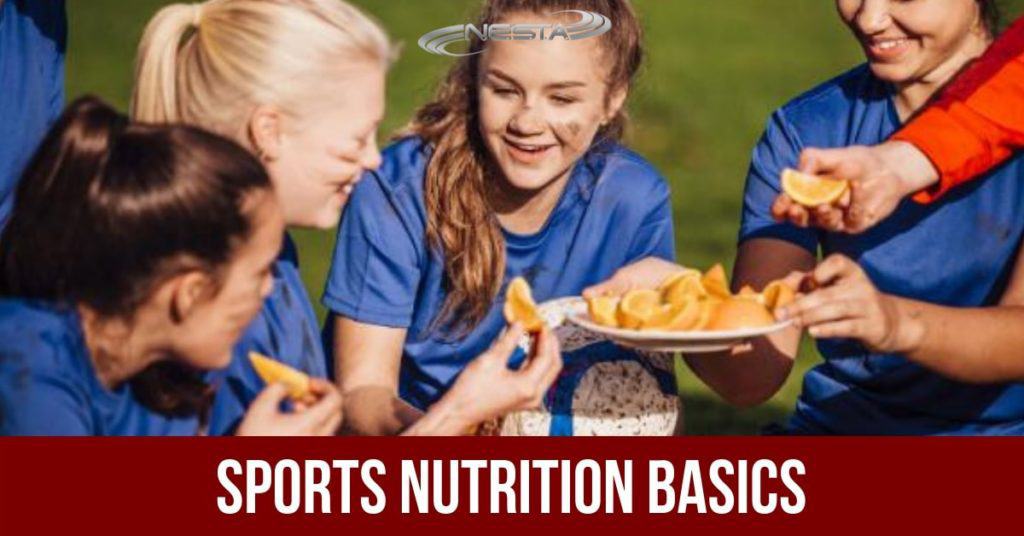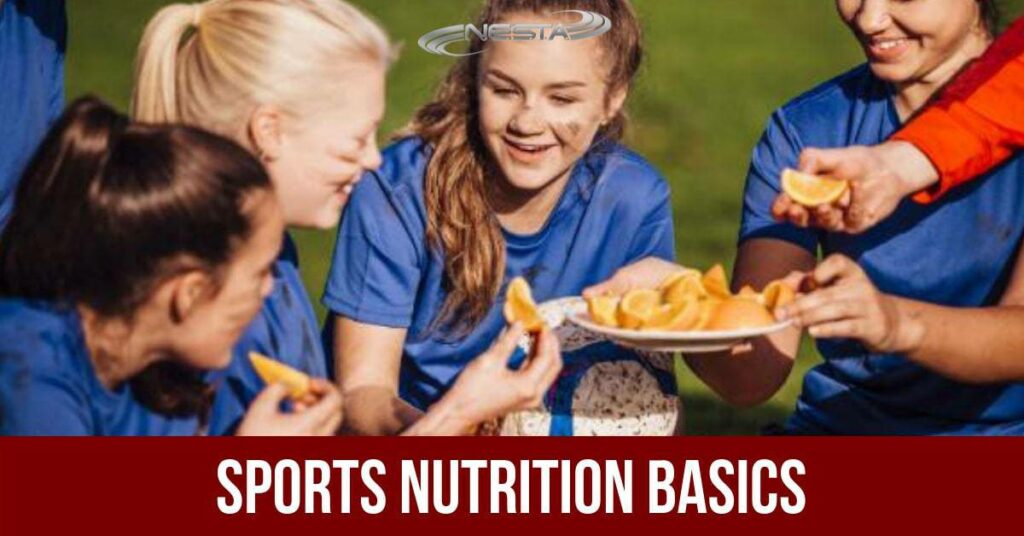
Defining Sports Nutrition
Most athletes and active individuals understand that nutrition is important for a healthy body. What most of them do not realize is that nutrition directly affects how they perform.
Learning what, how, and when to eat can be what makes or breaks performance. The outcome can be a desired edge that sets you apart or an unwanted weakness that stands in your way.
Sports nutrition covers basic nutrition principles as well as guidelines for eating and before, during and after workouts. Teaching clients to make the proper food and beverage choices will allow them to fuel their activity and allow muscles to properly recover from exercise.
The needs of the individual should also be considered. Men have different needs than women, and runners have different requirements than hockey players. Physical differences and the type of activity will dictate how to fine tune nutrition recommendations.
Whether the goal is an upcoming athletic event or a revamped exercise routine, to lose weight or to build muscle, any active individual can benefit from eating properly to support physical activity. This guide is designed to give the most accurate and up to date information to help your clients perform better.
- Calories needs and energy production
- Understanding the function and utilization of carbohydrates, protein, and fat
- Hydration
- Differentiating the needs of endurance verses strength-focused athletes
- Tips for preparing easy meals and snacks
- Supplement use
- Reliable sports nutrition resources
- Making smart choices when dining out or on the road
- Disordered eating
- And last, but certainly not least… realistic recommendations and tips for fitting these concepts into busy lifestyles
Why The Athlete’s Diet Is Different
Proper sports nutrition requires a different set of rules than general healthy eating recommendations.
Athletes at any level of fitness or competitiveness demand more of their bodies and therefore, need to fuel their bodies in a different way.
Many of the guidelines for nutrition and healthy eating in the diet-crazed mainstream media do not apply to an athletic population. To make things even more difficult, health care and fitness professionals need to sift through and dispel many of the myths surrounding nutrition and exercise.
Research from the last 30+ years has provided a strong foundation of basic sports nutrition concepts. These concepts can help motivated athletes meet the demands of intense physical activity.
Eating to accommodate activity requires knowledge, planning, and organization. It is vital to make sense of the all the different nutrition info available and convey the most accurate and honest information available to your clients.
What Makes A “Healthy” Diet
The main players in a healthy diet are carbohydrates, fat, and protein (a.k.a. the macronutrients), vitamins, minerals, and water. We rely on daily food choices to meet overall energy needs and the specific needs of these essential nutrients. Each plays an integral role in eating for performance as well as general health.
Carbohydrates are the body’s primary energy source. Consuming nutritious carbohydrate-rich foods like whole grains, fruits and vegetables ensure that the body has a ready supply of energy.
Fats are also an efficient energy source, used almost exclusively during certain points of exercise. Dietary fat also allows for proper absorption of fat-soluble vitamins (vitamins A, D, E, and K) and plays an important role in maintaining body temperature and nervous system function. Good sources of fat include plant-based oils (such as canola and olive), nuts, avocado, seeds, egg yolks and fatty fish like salmon, tuna, anchovies, and sardines.
Unlike carbohydrates and fat, protein is not a primary source of energy. Protein’s main function is growth, muscle development, and strength. Important sources of protein include lean meats, poultry, fish, soy, beans, dairy products, and eggs among others.
Maintaining a balanced intake of vitamins and minerals regulates metabolism and allows numerous chemical reactions to take place. Some also function as cell-protecting antioxidants.
Finally, without water, none of these would be possible. Hydration is just as important as diet. Maintaining a proper fluid balance keeps electrolytes in check, muscles healthy, and your metabolism running strong.
The bottom line is nutrition affects physical performance. Nutrients work together towards the ultimate goal of keeping the body operating to the best of its ability. But how can this be done most efficiently? Breaking down what, when and how much to eat is the key to successful sports nutrition.
Sports Nutrition Coaching
The NESTA Sports Nutrition Specialist course is designed for personal fitness trainers, strength coaches and nutrition experts who want to learn cutting-edge techniques for increasing sports performance, reducing recovery time, and enhancing the overall well-being of your clients and athletes.






